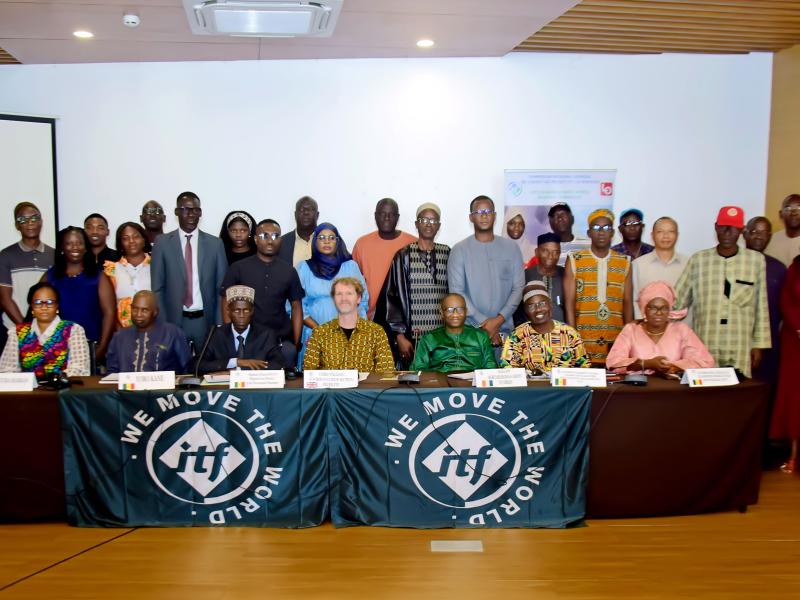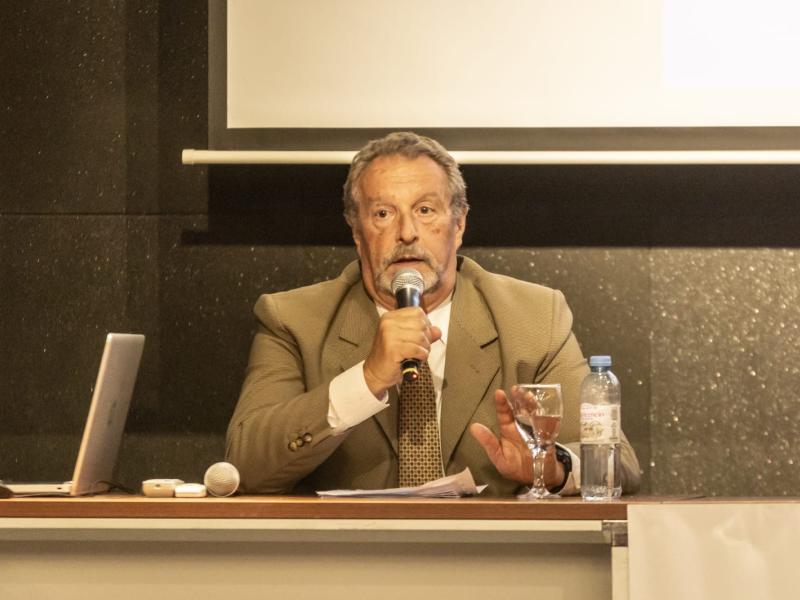International maritime unions have urged the Morrison government to reverse the decline of the Australian shipping industry and invest in the creation of a new strategic fleet to aid Australia’s emergency response capacity to natural disasters and move to protect the nation’s economic, environmental, fuel and national security interests.
The international delegation – from the US, Canada, New Zealand, Norway and the UK – appeared before the Senate Inquiry by the Rural and Regional Affairs and Transport References Committee’s into the policy, regulatory, taxation, administrative and funding priorities for Australian shipping at Parliament House in Canberra.
Proceedings started with an extension of solidarity and support to the Australian people for the tragic loss of life and property and catastrophic damage to Australia’s unique natural environment caused by the devastating wildfires across that region, and acknowledging the significant emergency maritime response to the crisis.
Union leaders and researchers appearing before the Committee presented details on current maritime cabotage legislation around the world and why a strong domestic maritime industry is critical to safeguarding Australia’s economic and national security, providing jobs, protecting the environment, and providing emergency assistance during natural disasters.
91 countries representing 80 percent of the world’s coastal UN Maritime States have cabotage laws restricting foreign maritime activity in their domestic coastal trades.
Jim Given, president of the Seafarers’ International Union of Canada and chair of the ITF’s Cabotage Task Force, told the inquiry that: “The reason for our appearance before you today is to discuss the importance of retaining and reinvigorating a domestic marine shipping industry.”
“I’m regularly reminded of how the Coasting Trade Act in Canada, and the Jones Act in the United States, are so integral to the overall success of our shipping industries and such a large contributor to the economies of both Canada and the United States of America. These policies are often regarded by our colleagues in Europe, Africa, Asia and Australia as the gold standard for the protection of seafarers’ rights, and the safety of our domestic maritime industries. Not only do strong cabotage laws ensure that domestic seafarers retain their jobs, they are also tremendous catalysts of economic growth for countries with such policies in place,” said Given.
Dave Heindel, secretary-treasurer of the Seafarers’ International Union of North America and chair of the ITF Seafarers’ Section also underscored the economic benefits of America’s maritime industry.
“Our domestic maritime cabotage laws have produced 40,000 American vessels built in US shipyards. They provide roughly 650,000 sustained American jobs with $41 billion in labor compensation and ultimately contribute $150 billion in annual economic output.
Heindel also told the inquiry that the benefits of the US’ strong cabotage laws are not limited to economic and national security and that the Jones Act also helps to secure America’s borders in times of war, national emergency, or even in peacetime.
The case was also made that cabotage not only provides jobs for a country’s seafarers, but it also safeguards foreign seafarers against exploitation posed by the liberalisation in the global shipping industry and Flag of Convenience vessels, the owners of which usually pay sub-standard wages and flout safety laws.
“Most ship owners want to earn as much money as possible, so if they can use cheaper crews they will do that. A lot of Norwegian ship owners changed their flags on their vessels and this issue has been escalating,” said Johnny Hansen, president of the Norwegian Seafarers’ Union.
ITF maritime co-ordinator Jacqueline Smith told Senators that the only ones benefitting from Flag of Convenience vessels are the shipowners. The delegation also countered arguments from opponents of cabotage laws who take the simple view that if laws enable domestic shipping companies to charge higher rates that costs are passed on to consumers.
“What is the true cost we should focus on? Is it the cost to the shipping company? Or the cost to Australia? As politicians, and as community leaders of the country, are the people not more important than the profit? Because that is what it boils down to,” said Given stating that the Morrison government must examine laws through the prism of local jobs, national security, fuel security and protecting the environment.
The delegation also renewed the call from maritime unions attending the ITF Cabotage Task Force meeting in Sydney earlier this week to act immediately to purchase the Aurora Australis, to strengthen Australia’s disaster response capacity as a first step in the creation a strategic fleet of Australian-crewed vessels and reinvigoration of Australia’s domestic shipping industry.
The following speakers appeared before the Senate Inquiry:
- Deirdre Fitzpatrick, Executive Director, Seafarers' Rights International
- Dave Heindel, Secretary Treasurer, Seafarers' International Union of North America
- Jim Given, President, Seafarers' International Union of Canada
- Johnny Hansen, President, Norwegian Seafarers' Union
- Joe Fleetwood, National Secretary, Maritime Union of New Zealand
- Jacqueline Smith, Maritime Co-ordinator, International Transport Workers' Federation



